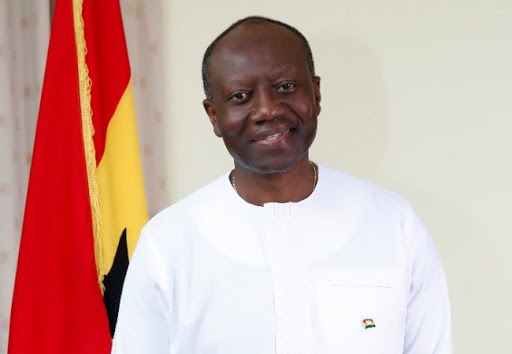- as novel 4-year Zero-Coupon Tranche is over-subscribed
- jury still out on long-term implications
The national coffers are set for a windfall as investors once again displayed their appetite for risk by oversubscribing to the four-year Zero-Coupon Tranche issued by the government of Ghana – the first of its kind by an Emerging Market Sovereign, the Ministry of Finance has disclosed.
In a statement by the Ministry, detailing specifics of the issuance, it was lauded for achieving a record size in excess of US$3 billion and enhancing its market access, as well as being two-times oversubscribed, peaking north of US$6 billion. It has also been described as evidence of investors’ continued support for Ghana’s transformation story and strong fiscal consolidation efforts.
A zero-coupon bond is a bond that does not make periodic interest payments during the tenor of the bond, but is sold at a discount to its value at maturity.
This round of Eurobond transactions was concluded on Monday, March 29, 2021, after a series of fixed-income virtual meetings held locally across three days with investors from the United States, United Kingdom, Europe, Middle East and Asia.
The transaction comprised US$525 million 4-Year Zero Coupon, US$1 billion 7-year Weighted Average Life (WAL), US$1 billion 12-year WAL and US$500 million 20-year WAL. The traditional Eurobonds were priced at 7.75%, 8.625% and 8.875%, respectively.
The statement captures the Minister of Finance, Ken Ofori-Atta as saying: “this historic bond issuance is a strong signal that investors have confidence in our plan for debt sustainability, economic recovery and growth and that Ghana remains a pillar of stability.”
Proponents of the issuance have touted investor confidence in the Ghanaian economy, describing it as a testament to its hard-won credibility with investors, strong growth prospects and disciplined fiscal consolidation efforts in 2020, particularly in light of prevailing adverse economic circumstances occasioned by the ongoing pandemic, particularly with fears of a third-wave of infections across Europe and Asia.
Critics, however, have dismissed the development, arguing that it is more an indication of investors’ rush for yield, despite the apparent risks, than it is a testament of faith in the local economy.
Regardless, the issuance will offer the state respite, at least, in the short-term, as it will offer fiscal space due to the limit on interest payments over the period and is considered crucial as the economy seeks to recover from the pandemic.
Part of the proceeds shall be used for domestic liability management. “For example, using US$400m of the zero-coupon bond to refinance domestic debt with an average interest rate of 19% will net Ghana savings of some US$200 million over the next four years,” Mr. Ofori-Atta is quoted as saying.
The 20 Year Tranche, which is priced at 8.875%, fills a gap in Ghana’s yield curve, ensuring that Ghana now has a well-defined yield curve with issuances across the curve from 4 years to 41 years.
After successfully raising US$2 billion in 2018, US$3 billion in 2019 and US$3 billion in 2020, Monday’s successful bond issuance “should boost business confidence as the government looks to stimulate the economy and increase revenue through what it calls ‘burden-sharing’ for ‘enhanced profit sharing’,” the statement said.
The Joint Lead Managers for the transaction were BofA Securities, Citi, Rand Merchant Bank (RMB), Standard Bank and Standard Chartered Bank. Co-managers were CalBank PLC, Databank, Fidelity Bank, IC Securities and Temple Investments.










